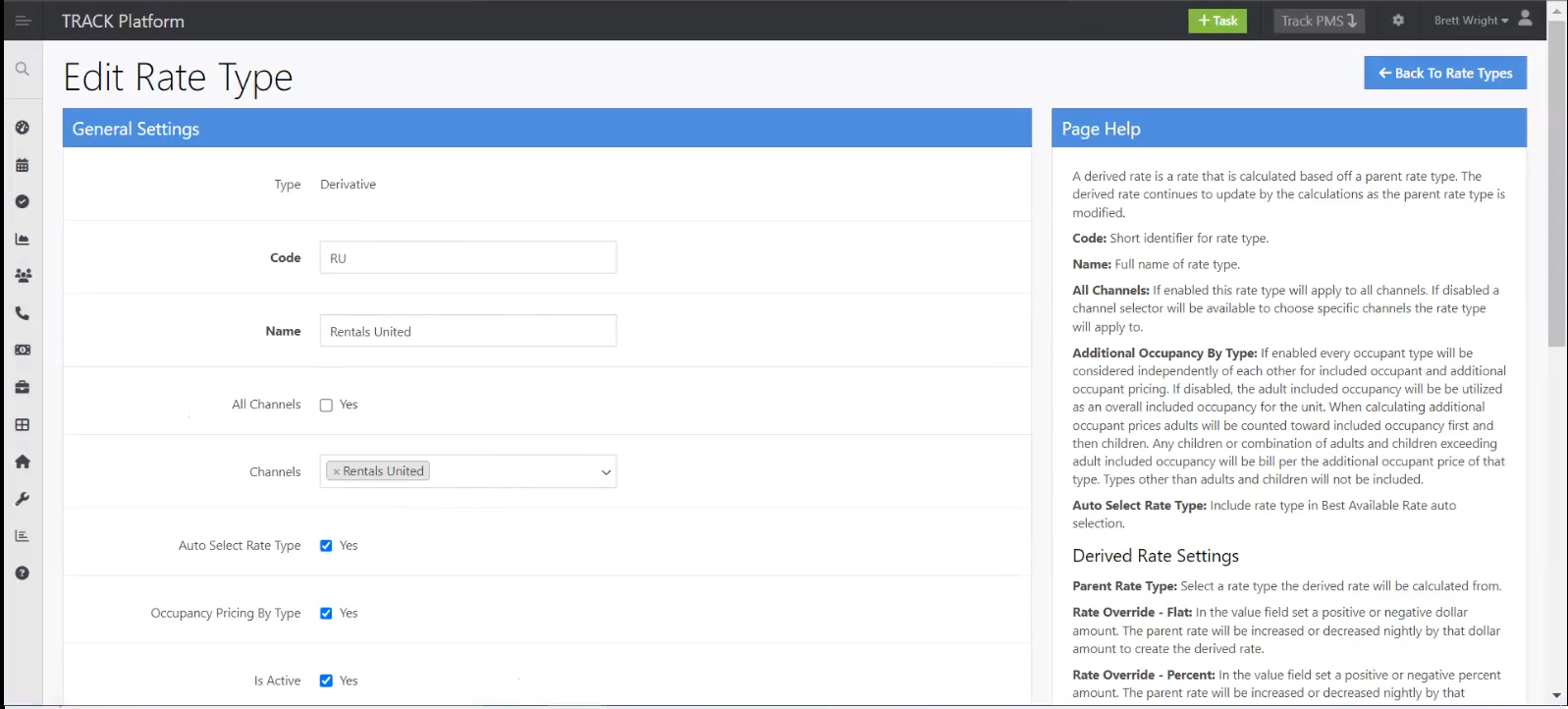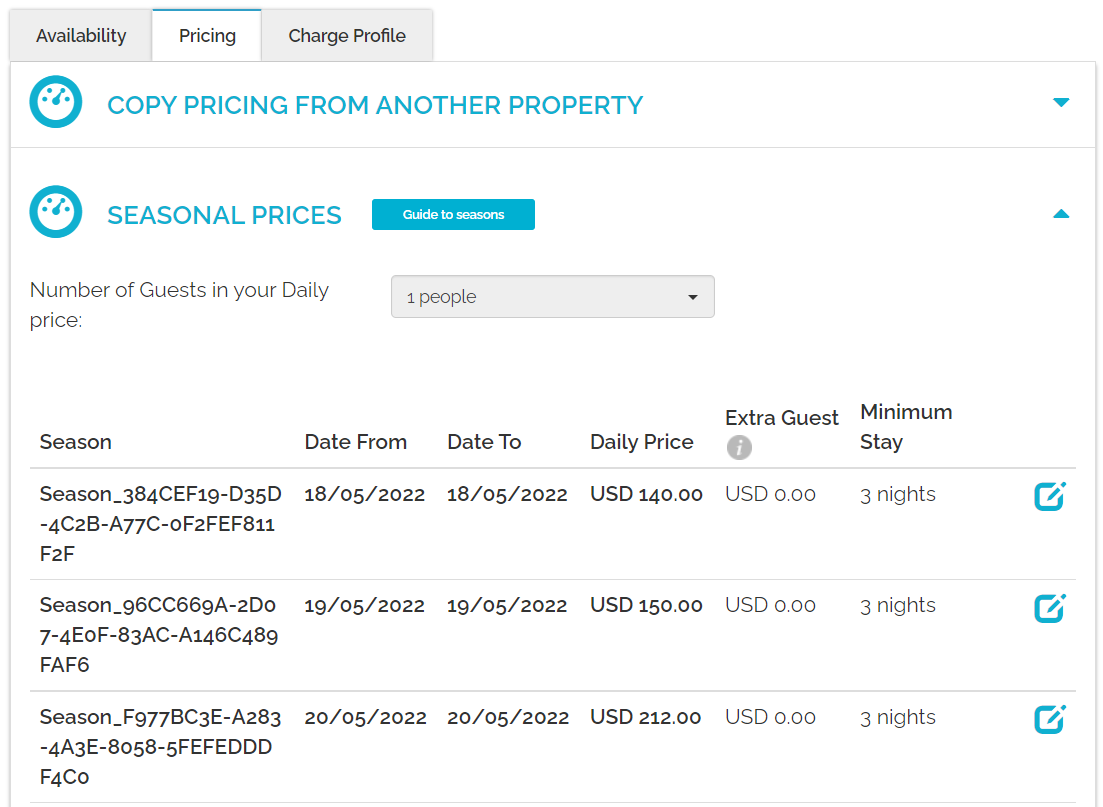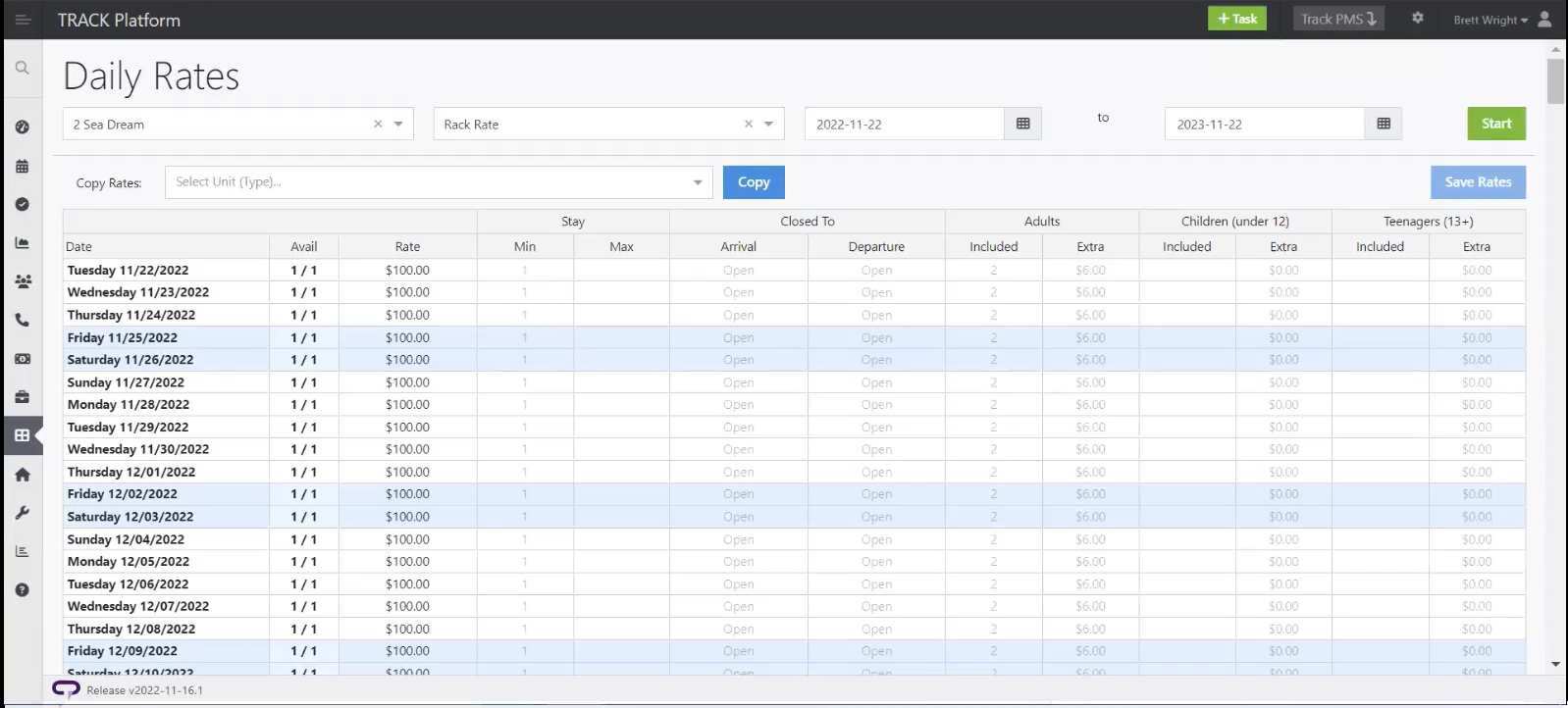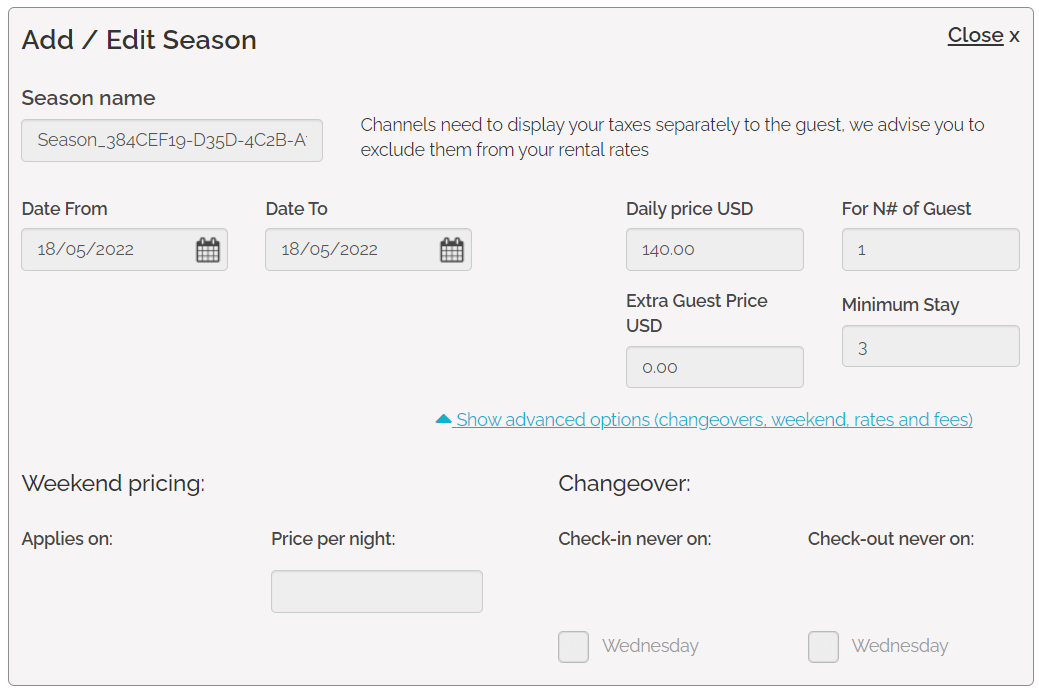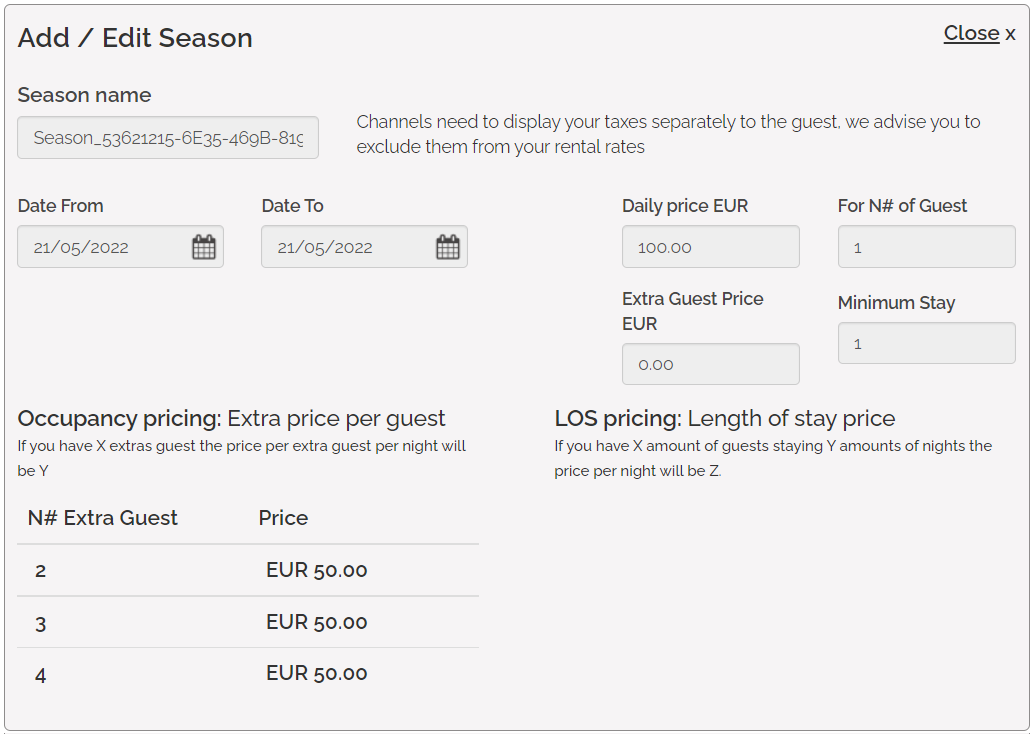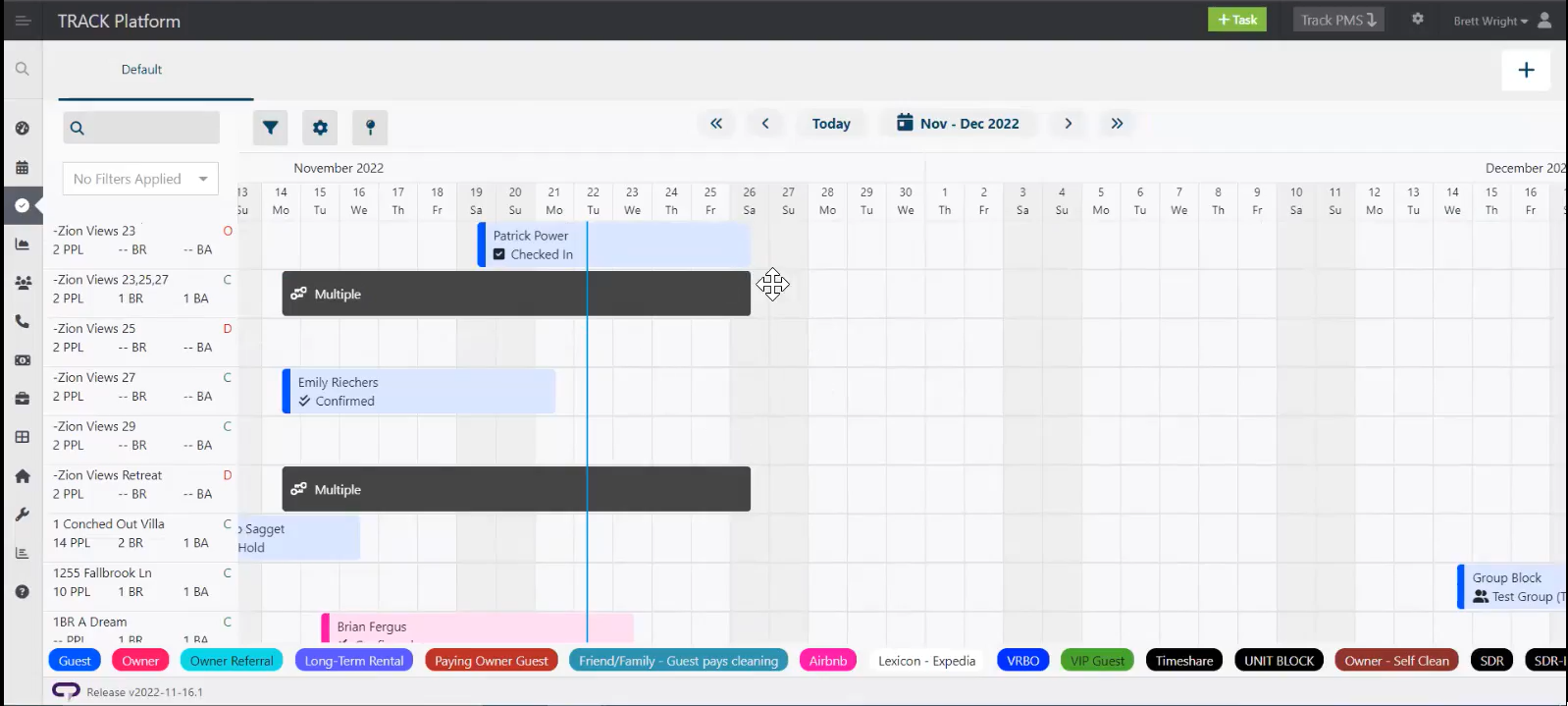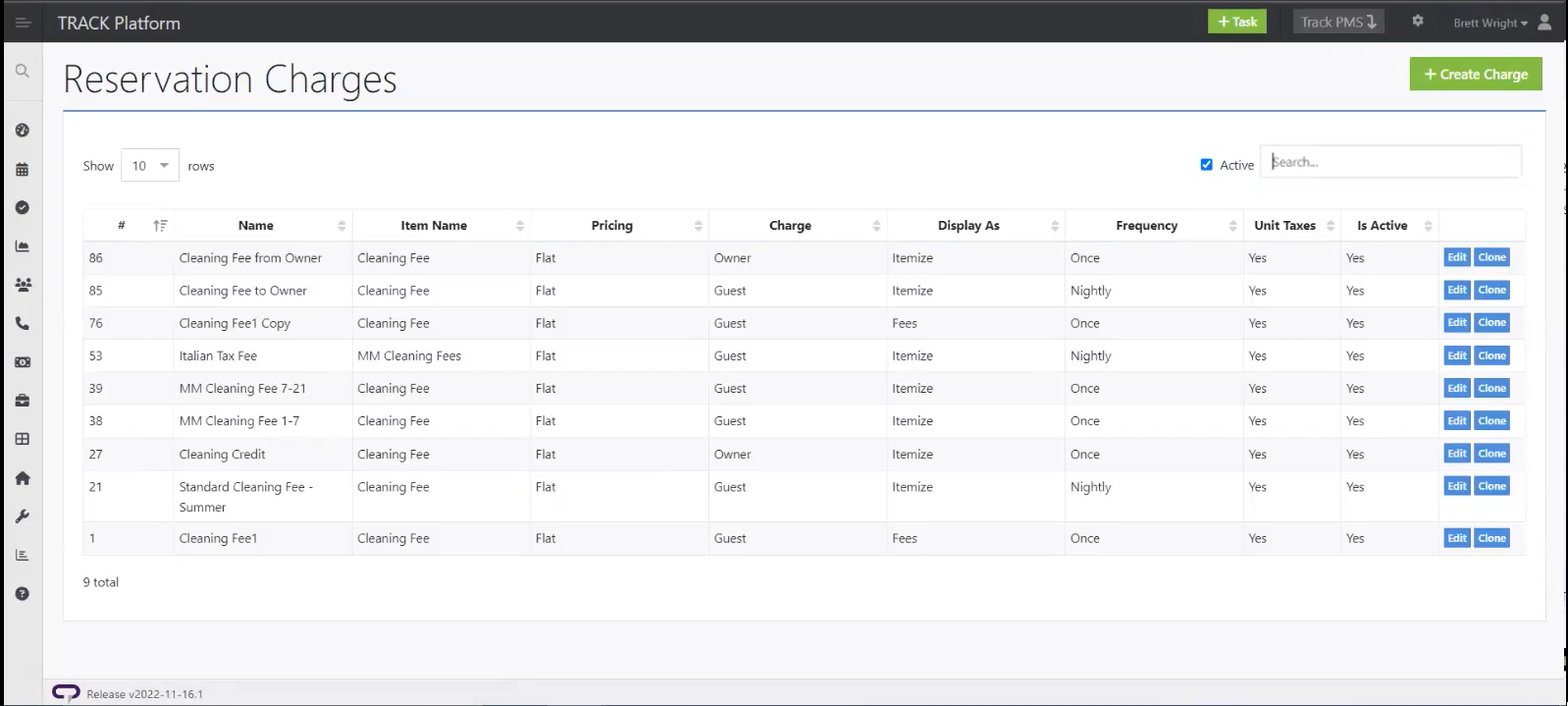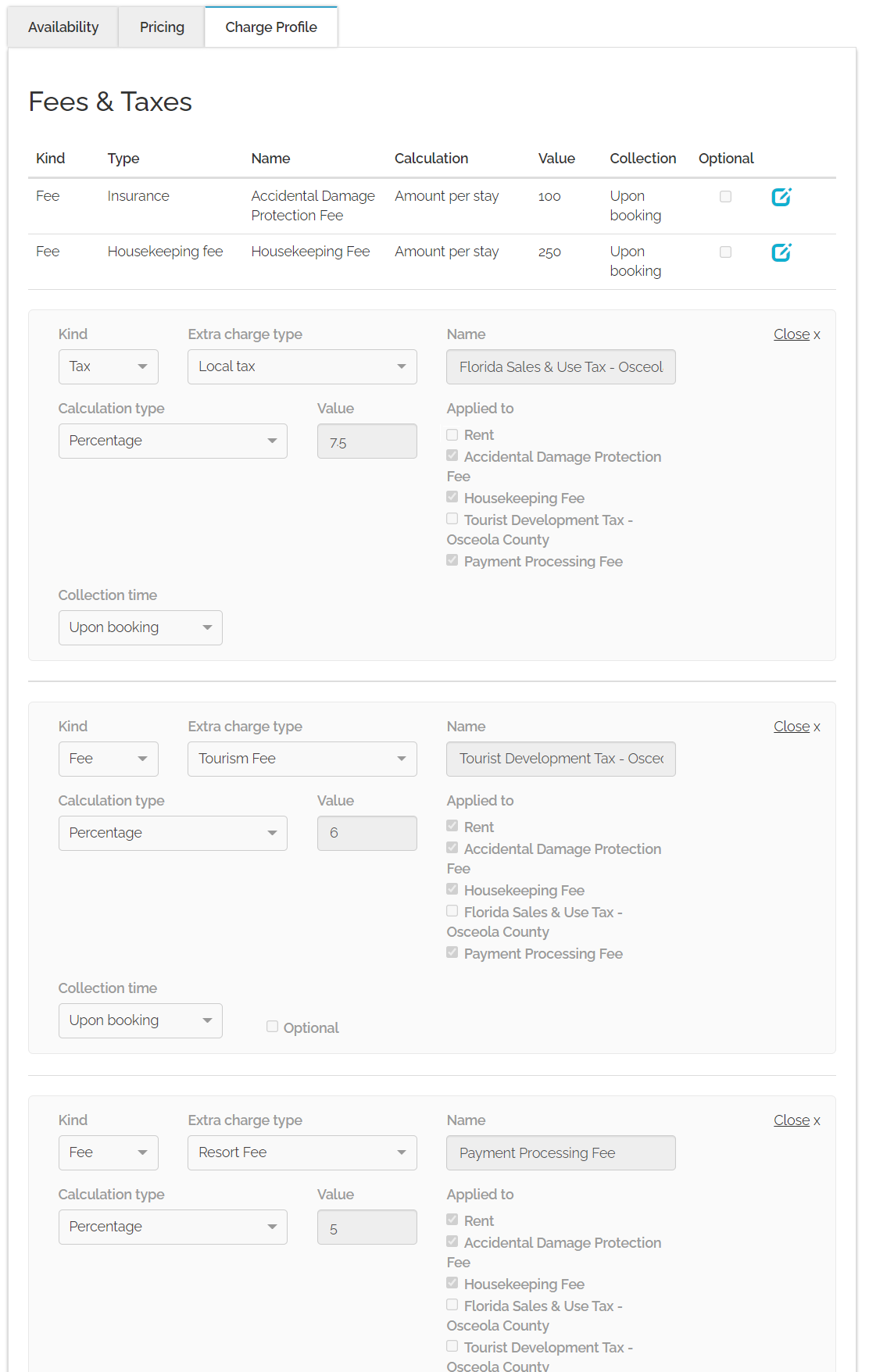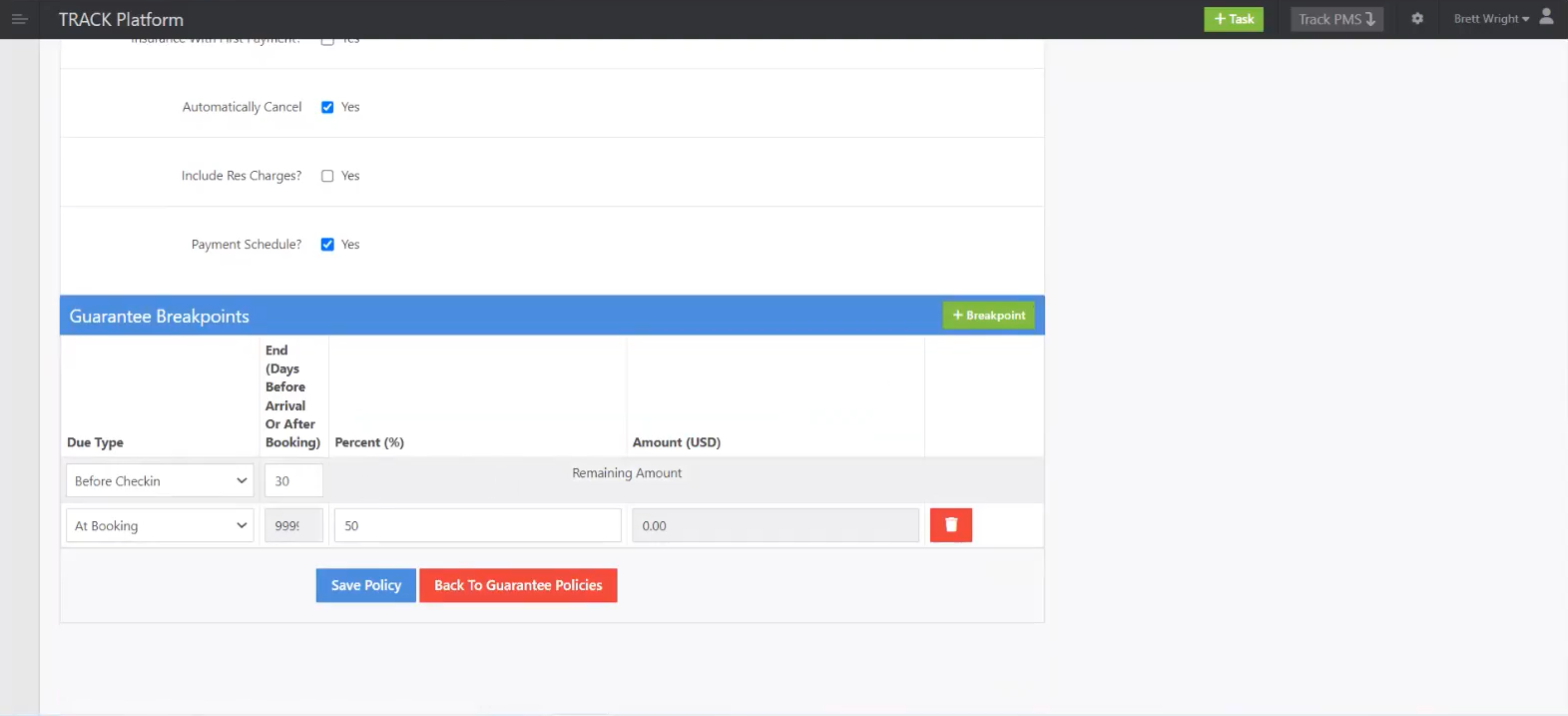Step 5: Price and availability
LOS pricing model (N/A)
FSP pricing model (N/A)
Daily price model
Daily price model calculation is based on the values retrieved from various data fields. It allows for detailed pricing settings if set carefully. Also, Daily price model is based on seasons.
The season refers to a period of time when particular pricing is applied. It is possible to set as many seasons as required, varying in length and specification. The minimum settings require:
-
Season name,
-
Date range,
- Price.
Seasons for are created for each day individually.
|
In TRACK: Rate Types > Choose the rate type for Rentals United (in most cases, the TRACK clients have a specific derivative rate type created for Rentals United > Edit > General Settings & Derivative Rate Adjustments |
Daily price

Daily price is the standard way of setting prices. It indicates the base price per night for the Standard number of guests.
Daily prices are taken from the "rateTypes" collection where the "id": 1.
|
In TRACK: Daily Rates > Rate |
Standard number of guests (N/A)
Standard number of guests is not synchronized. This information will be always set to 1. If you want to change this, you can update this information directly in the Rentals United platform.
Extra guest price (N/A)
Minimum stay

Minimum stay indicates the minimum number of days a reservation can be made for. Guests will be not be able to book your property if they want to book stays shorter than minim stay. This value is mandatory to provide.
|
In TRACK: Daily Rates > Min |
Weekend pricing (N/A)
Occupancy pricing

In Occupancy pricing, it is possible to specify pricing plans for different numbers of guests. The difference between Extra guest price and Occupancy pricing lies in fact that with Extra guest price the same price is applied for each extra guest. On the other hand, in Occupancy pricing it is perfectly possible to specify different prices for different numbers of guests. Note that Occupancy pricing takes precedence over Extra guest price.
We calculate Occupancy pricing based on the extra charges passed for occupantTypes"."id": 1 (adults) and occupantTypes"."id": 2 (children). Then, we will identify one common price for both adults and children.
Standard number of guests: 1 (see Standard number of guests (N/A))
Maximum number of guests: 5 (see Maximum number of guests)
Daily price: 100 USD (see Daily price)
-
Identify the highest "rate" value. In this case it is "rate": "50.00".
-
Identify the lowest "included" value. In this case it is "included": 2.
-
Compose the Occupancy pricing from the lowest "included" value up to (Maximum number of guests - Standard number of guests). Then, assign the highest "rate" value to each record.
In this example, Occupancy pricing is created for number of guests from 2 to (5 - 1), that is from 2 to 4 extra guests.
2 extra guests: 50 USD
3 extra guests: 50 USD
4 extra guests: 50 USD
|
In TRACK: Daily Rates > Adults > Included |
Complimentary topics
Discounts (N/A)
Calendar
Calendar stands for the property's availability to rent. You can check here the availability of your property in the selected time frames. Once a reservation is inserted in Rentals United, the availability in the calendar gets blocked for this period. The calendar is updated automatically every time the availability of the property changes or at predefined times to remain up-to-date.
Every time availability is retrieved from PMS, Rentals United receives it in the following format:
|
|
In TRACK: Tape Chart |
Preparation Time Before Arrival (N/A)
Changeover restrictions

Changeover restrictions specify whether check-in or check-out is allowed for a given day. This is a great option if you need the guests checking in and out to fit your schedule and it will help you avoid unexpected guests. If some days are restricted from changeovers, then your guests will simply not be able to select such a stay if the start or end day falls on a changeover-restricted day.
|
In TRACK: Daily Rates > Closed To > Arrival & Departure |
Tax and Fee
Tax refers to mandatory charges legally levied on particular types of goods, services and transactions, paid as a contribution to the state’s revenue, for example VAT or city tax.
Fee refers to mandatory or optional charges paid in exchange for particular services. These include:Charges for additional services, for example Internet access or shuttle.
Fees defined by local governments that do not fall into the tax category, for example environmental fees.
Example: Fee application rules
Payment Processing Fee (1) applies to Accidental Damage Protection Fee (2) and Housekeeping Fee (3) because both (2) and (3) fees have the "includedInSubtotal": "true" setting. All fees by default apply to Rent (6), .
Tourist Development Tax - Osceola County (4) applies to Payment Processing Fee (1), Accidental Damage Protection Fee (2) and Housekeeping Fee (3) because all (1), (2) and (3) fees have this tax references in the "taxes" collection. This tax (4) applies also to the Rent (6) because the tax has "shortTerm": "true" setting.
Florida Sales & Use Tax - Osceola County (7) applies to Payment Processing Fee (1), Accidental Damage Protection Fee (2) and Housekeeping Fee (3) because all (1), (2) and (3) fees have this tax references in the "taxes" collection. This tax (7) applies also to the Rent (6) because at least one parameter from "shortTerm" and "longTerm" is set to "true".
Tax must apply to a fee or the rent in order to be synchronised to Rentals United. If the tax does not apply to a fee or there is no "fees" collection at all, then the tax in the "taxes" collection must apply to the Rent line item (at least one parameter from "shortTerm" and "longTerm" is set to "true"). Otherwise, the taxis skipped.
Fees in TRACK: Reservation Fees Taxes in TRACK: Settings > Configuration > PMS Setup > Taxes |
Down payment
Down payment is a mandatory or optional charge the guest needs to pay to confirm the reservation at this property. The outstanding balance will be charged upon the guest’s arrival.
Down payment data will be synchronized always for the "dueType": "at-booking" option.
In TRACK: Settings > Configuration > PMS Setup > Reservations > Guarantee Policies > Edit > Guarantee Breakpoints |
